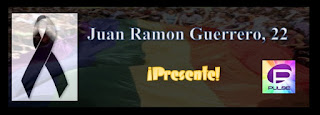Here is what's different.
When GWB was installed (not elected) in 2000, I was outraged and saddened but I did not fear for my fellow-citizens. When he launched an illegal and immoral pre-emptive invasion and occupation of Iraq, I considered him a war criminal, and I still do, but I did not fear for my fellow citizens. When he pushed to privatize Social Security I did fear for my fellow citizens, but overall I trusted our society.
This time when Trump has won the electoral college (but lost the popular vote nationwide), I am horrified and I DO fear for my fellow citizens. Bush was a dry drunk frat boy but was not an out-of-control narcissist and everyday bully. He was often wrong and sold an entire war based on lies but he did not lie about damned near everything on a daily basis. He was part of an entitled New England political family that I did not trust, but he was not a lifelong con man. He did not have a record of bilking people he worked with (until he put tax cuts for the wealthy and two wars off the books, thus bilking the entire nation). He did not scapegoat Muslims, even in the light of 9/11 which was an extreme terrorist act. He may not have promoted equality for folks like me but he did not threaten to dismantle our progress. He did not characterize entire swathes of the population as rapists and thieves. Whatever my feelings about what I often called "the Bush Crime Family," I acknowledge that they have some sense of noblesse oblige, a responsibility toward society.
I fear for my fellow citizens and it is not just because of Trump but because half of those who voted seem to approve his message. A nation that would elect him is not a nation in which I would want to raise a daughter, or be a woman, or a person of color, or Muslim or Jewish, or any faith other than "Christian." It is a nation that has now normalized bullying. It is a nation that has encouraged white racism, sexual predation, and service of the self. I realize there is great appeal in the idea of shaking things up and bringing about change, but how one shakes and what one changes matters. You cannot heal and build on slogans alone without substance. I am afraid of the substance.
I do not want to see women and girls disrespected. I do not want to see their healthcare dismantled. I do not want to see the marriages of my friends disavowed and other friends denied the right to marry. I do not want to see queer, bi, and trans people treated as second class. I do not want to see continued slaughter of young African-American men or threats to women in hijabs or Sikhs attacked because they have turbans (attacked by know-nothings who have no clue that Sikhs are not Muslims) or Hispanics viewed as a threat to our way of life. I grew up in California and live in New Mexico, regions that were part of Spain and Mexico before they were acquired by the USA. I do not want the ongoing cultural and economic genocide of Native Americans to continue.
In short, while I believe as a nation and fellow citizens we do need to come together, this time is not like prior times and saying "Let's all get along' is way too easy. Half the voting populace just told me that I and many of my fellow citizens are not equal and don't fully belong. "Let's unite" just becomes a slogan of my/our oppression. It's easy to say if you are white, male, conservative Christian, and heterosexual but it you are not, it carries a threat. We all need to acknowledge that.
--the BB
When GWB was installed (not elected) in 2000, I was outraged and saddened but I did not fear for my fellow-citizens. When he launched an illegal and immoral pre-emptive invasion and occupation of Iraq, I considered him a war criminal, and I still do, but I did not fear for my fellow citizens. When he pushed to privatize Social Security I did fear for my fellow citizens, but overall I trusted our society.
This time when Trump has won the electoral college (but lost the popular vote nationwide), I am horrified and I DO fear for my fellow citizens. Bush was a dry drunk frat boy but was not an out-of-control narcissist and everyday bully. He was often wrong and sold an entire war based on lies but he did not lie about damned near everything on a daily basis. He was part of an entitled New England political family that I did not trust, but he was not a lifelong con man. He did not have a record of bilking people he worked with (until he put tax cuts for the wealthy and two wars off the books, thus bilking the entire nation). He did not scapegoat Muslims, even in the light of 9/11 which was an extreme terrorist act. He may not have promoted equality for folks like me but he did not threaten to dismantle our progress. He did not characterize entire swathes of the population as rapists and thieves. Whatever my feelings about what I often called "the Bush Crime Family," I acknowledge that they have some sense of noblesse oblige, a responsibility toward society.
I fear for my fellow citizens and it is not just because of Trump but because half of those who voted seem to approve his message. A nation that would elect him is not a nation in which I would want to raise a daughter, or be a woman, or a person of color, or Muslim or Jewish, or any faith other than "Christian." It is a nation that has now normalized bullying. It is a nation that has encouraged white racism, sexual predation, and service of the self. I realize there is great appeal in the idea of shaking things up and bringing about change, but how one shakes and what one changes matters. You cannot heal and build on slogans alone without substance. I am afraid of the substance.
I do not want to see women and girls disrespected. I do not want to see their healthcare dismantled. I do not want to see the marriages of my friends disavowed and other friends denied the right to marry. I do not want to see queer, bi, and trans people treated as second class. I do not want to see continued slaughter of young African-American men or threats to women in hijabs or Sikhs attacked because they have turbans (attacked by know-nothings who have no clue that Sikhs are not Muslims) or Hispanics viewed as a threat to our way of life. I grew up in California and live in New Mexico, regions that were part of Spain and Mexico before they were acquired by the USA. I do not want the ongoing cultural and economic genocide of Native Americans to continue.
In short, while I believe as a nation and fellow citizens we do need to come together, this time is not like prior times and saying "Let's all get along' is way too easy. Half the voting populace just told me that I and many of my fellow citizens are not equal and don't fully belong. "Let's unite" just becomes a slogan of my/our oppression. It's easy to say if you are white, male, conservative Christian, and heterosexual but it you are not, it carries a threat. We all need to acknowledge that.
--the BB























































